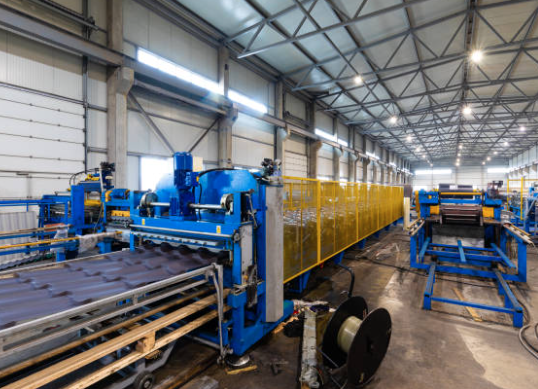When it comes to selecting the right roll forming machine, several key factors must be considered to ensure it meets your specific applications and production requirements. Here’s a comprehensive guide to help you make an informed decision:
1. Understand Your Production Needs
- Volume Requirements: Determine the quantity of products you plan to produce. High-volume operations may require more robust machines with faster production speeds.
- Profile Complexity: Consider the complexity of the profiles you need to produce. More intricate designs may require advanced machines with specialized tooling.
2. Material Considerations
- Material Type: Identify the types of materials you will be using, such as steel, aluminum, or other metals. Each material has different properties that may affect the machine choice.
- Material Thickness: The thickness of the material you plan to roll form is crucial. Ensure the machine can handle the specified gauge and weight of the metal.
3. Machine Features
- Automation Level: Consider the level of automation you require. Fully automated systems can enhance efficiency and reduce labor costs but may involve higher upfront investments.
- Flexibility and Customization: Look for machines that offer flexibility in producing various profiles and that can easily adapt to changing production needs.
4. Cost Factors
- Budget Constraints: Establish a clear budget. Keep in mind that higher initial costs may be justified by improved efficiency and lower operating costs over time.
- Total Cost of Ownership (TCO): Consider maintenance, operation, and potential downtime costs associated with the machine.
5. Space and Setup
- Footprint: Assess the available space in your facility. Some machines may require more floor space or specific environmental conditions.
- Installation Requirements: Check if the machine requires specialized installation services or infrastructure enhancements.
6. Supplier Reputation and Support
- Manufacturer Reliability: Choose a reputable manufacturer known for quality and reliability. Research their track record in the industry.
- After-Sales Support: Consider the availability of technical support, spare parts, and maintenance services to minimize downtime.
7. Future-Proofing Your Investment
- Scalability: Select a machine that can grow with your business. Look for options that allow for upgrades or the addition of new capabilities.
- Technological Advancements: Stay informed about the latest advancements in roll forming technology that could enhance productivity or quality.
8. Consultation and Testing
- Seek Expert Advice: Don’t hesitate to consult industry experts or manufacturers. They can provide valuable insights based on your specific requirements.
- Request Demos: If possible, request demonstrations or test runs with the machines you are considering to assess their performance firsthand.
Conclusion
Choosing the right roll forming machine is a critical decision that can significantly impact your production efficiency and product quality. By carefully evaluating your needs, material requirements, and available options, you can select a machine that aligns perfectly with your business goals.




